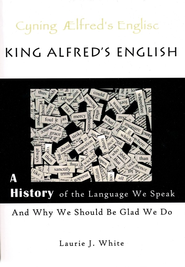Choosing a literature program for your teens isn’t the easiest thing in the world. Neither are actually having the class and getting teens to read the books. Are false ideas about literature sabotaging all of your good efforts?
Read on to see if you have avoided believing these three myths about homeschool literature. And before I forget, check out the link at the end of this article for your FREE downloads from our literature courses.

Avoid these myths. Enjoy success.
1. My teen should read all the classics.
Do you know what’s in all those books?! Most of what we call classics today were never meant to be read by teens. Many classics deal with adult issues and often include situations or viewpoints you might not want your student to read, at least not without adult guidance.
For instance, H. G. Wells’ The War of the Worlds includes a religious figure who represents Christianity and is weak, muddled, and puts the main character in danger. If an informed adult or literature program does not point this out and show how it is inconsistent with true Christianity, your student might end up believing that God is weak and ineffective in times of trouble, which is exactly what H. G. Wells believed.
Do not underestimate the power of fiction to affect your children’s hearts and change their minds.
The classics aren’t sacred. Yes, many of them are beautiful or show something meaningful about life, as the powerful sacrifice and resurrection themes in Charles Dickens’ A Tale of Two Cities, but others might have very little redeeming value to them for the Christian teen reader.
If you find your teens are reacting negatively to something in the novel, play, or short story they’re reading—like becoming depressed or adopting beliefs contrary to those in Scripture—choose another classic. Be discerning.
2. My teen should like every literature book he reads.
Not happening. However, if you’ve chosen a novel, play, short story, or poem for a particular reason, make sure your student understands the value of the story, whether its theme, beauty, writing style, life lessons, and so forth.
3. My teen reads popular fiction. She doesn’t need literature.
Relying on popular novels for a literature class is like eating pizza, hot dogs, and chips for every meal; sure, it’s food, but it won’t give your teen the literary nutrition she needs nor will it encourage her to flex her mind. Additionally, she won’t understand how the novel was constructed to influence her thinking and opinions.
And, as best-selling Japanese author Haruki Murakami says, “If you only read the books that everyone else is reading, you can only think what everyone else is thinking.” Is that really what you want for your teen?
Illuminating Literature: When Worlds Collide and Illuminating Literature: Characters in Crisis will unlock the secrets of literature for your students. Click here for your FREE download of the first two chapters of both of our welcoming literature courses for your teens. You can also download a free lesson from our junior high literature course Their Blood Tingled at the bottom of that page.
Yours for a more vibrant literature class,











